
SAHM Chews Out Mom For Sending Kids To Daycare, Gets Blocked After 20 Years Of Friendship
People always find a way to surprise us. Even those whom we’ve known for decades can one day reveal an unknown side of themselves that makes us question our entire relationship.
A few days ago, one woman made a post on the subreddit ‘AITAH‘ (which is basically the same as the legendary ‘AITA’, only it focuses exclusively on difficult interpersonal conflicts) about falling out with her friend.
It started happening after the woman gave birth: due to some of her choices — for example, putting her kids in daycare — the friend began hinting that she might not be a “real mom” because of the lack of struggles compared to other parents.
Eventually, the woman ended their friendship but since the two of them have had such a long history, she’s still having doubts if that was the correct decision.
Daycare is a popular option among parents who want (or need) to work
Image credits: Rawpixel (not the actual photo)
But this woman was accused of being a fake mom because she sent her kids there
Image credits: ORION_production (not the actual photo)
Image credits: NotArealMom4563
Home and daycare shouldn’t be viewed as competitors, but rather as collaborators
Many parents hope that daycare will accelerate their children’s development and free them to participate fully and productively in the economy.
But the notion that daycare can disorganize and weaken the family unit, interfere with parent-child bonds, erode parental authority, and expose kids for long stretches in their vulnerable years to crowded, impersonal environments is quite widespread.
Noam Shpancer, Ph.D., who is the author of the novel The Good Psychologist and professor of psychology at Otterbein University in Westerville, Ohio, wrote that childcare research in the US (and elsewhere) since the 1970s has undertaken the difficult task of testing these contrasting predictions, “with studies producing an equivocal mix of contradictory, conditional, and inconclusive answers of the kind that tend to frustrate policymakers and parents alike, as well as the researchers themselves.”
However, difficulties and ongoing controversies notwithstanding, the field has managed in the past several decades to settle with reasonable confidence on several insights and working conclusions.
“An over-arching finding in the literature is that daycare influences are less important than home influences, even for children who spend much time in daycare,” Shpancer explained. “In other words, home and family variables account for more of the variance in children’s developmental outcomes than daycare variables.”
According to the psychologist, nonparental care arrangements—and by proxy, maternal employment— are not inherently risky for children. Turns out, daycare children are not systematically different than those raised exclusively at home in terms of their overall developmental trajectories.
For example, Shpancer pointed out that research has found “that some infants—particularly those who began daycare in the first year of life, who spent more than 10 hours a week in daycare, and whose mothers provided less sensitive care—had an increased risk of developing insecure infant-mother attachments.”
But again, this is such an exact set of conditions that we can’t just lump kids from daycare together and apply it to them all.
“Daycare is by now a normative part of family life in the US, as it is in most developed countries,” the psychologist said. “For good or ill, the effects of daycare on children’s development are on the whole smaller than family influences. Daycare is not inherently harmful to children, and may in fact help accelerate their development, as well as provide a buffer against, and compensation for, the ill effects of disadvantaged home environments.”
“The positive and protective effects of daycare are associated mainly with educationally stimulating, high-quality care of the kind that is most often provided in licensed, regulated daycare centers.”
At the end of the day, he said that home and daycare are not competitors but collaborators, and should not be conceptualized as being at odds or in conflict with each other. A conclusion that, sadly, the women from the Reddit post couldn’t come to.
According to Vicki Broadbent of Honest Mum, a mother can encompass many meanings: biological, adoptive, anyone in a caring role who nurtures and provides for a child and is their guardian
Image credits: honestmum.com
“Trying to diminish her friend’s status as a mother in this way is unsurprisingly deeply hurtful, and was likely to be said with the intention to hurt,” our parenting expert Vicki Broadbent, who runs the award-winning family and lifestyle blog Honest Mum, told Bored Panda. “Of course, we’re all human and perhaps she said it without thinking first and if that was the case, she should then apologize.”
“It does seem, however, that this woman appears to be projecting her own views, insecurities, and limiting, potentially internalized misogynist views and definition of motherhood onto her friend,” Broadbent added.
The author of Mumboss (UK) and The Working Mom (US and Canada) thinks that instead of manipulating and shaming her friend, the woman could have had an open-minded discussion and tried to gain understanding and a different point of view.
“Maturing means demonstrating empathy and understanding that everyone has a right to raise their children and live their life in a way they see fit as long as it doesn’t cause any harm. It also means not offering unsolicited opinions without careful thought.”
According to her, often people who behave in this way may have experienced the same judgment from others. “They normalize this as, ‘advice’, ‘being honest’, ‘offering tough love’ or ‘coming from a loving place’ when to the recipient, it’s the total opposite,” Broadbent said. “Everyone’s situation is unique and different, and we as a society should have progressed to a position where we are free to parent in a way which we personally deem right.”
“Mothers and women still face prejudice in the workplace, lack of flexibility, and being able to work remotely (as well as having to pay extortionate childcare fees), and frankly we are expected to work like we don’t have children and raise children as if we don’t work,” she highlighted, referring to a book by Eve Rodsky, called Fair Play: A Game-Changing Solution for When You Have Too Much to Do.
Since many parents live differently from one another, Broadbent believes that we must all be open-minded and that “as long as the children are loved and cared for and are happy and healthy, no one has the right to dictate how others should parent.”
Agreeing with Noam Shpancer, she said, “Daycare is absolutely collaborative, providers are there to support your parenting. I read that full-time parenting is the equivalent of 2.5 jobs. If women want to continue their careers (and many don’t have a choice in that either), childcare is a part of the child’s life. Childcare settings encourage learning, independence, socialization, confidence, and resilience.”
After reading her story, many people said the woman did nothing wrong
But a few sided with her (former) friend
Explore more of these tags
I don't get these people that claim daycare harms children... I don't have any, but my sister put my niece in daycare at 7 months, and not because she wanted to get back to work, but because IT IS beneficial for the child! In the 6 months she's been in daycare, my niece started to feel much more comfortable when people are around, learned a lot of new words (at 13 months of age) and is already standing up and trying to walk! All this whilst my sister still spending at least 8 hours a day with her, after daycare, as she is a SAHM and takes care of house chores and cleaning while my niece is in daycare. Stop blaming others for your shortcomings, people, and pull your heads out of your a******s...
Pure insanity. We are group animals, like monkeys that mix lots of little ones with multiple adults raising them; that's how we learn, from seeing slightly older peers do things (better) than we can. If anything, keeping kids at home with only yourself and the occasional playdate is just bad for kids. Same with homeschooling; it's only needed if you're concerned some knowledge will enter their fragile minds that your own dogma cannot deal with, or some medical/psychological complications.
Load More Replies...Earlier than the 50's, maybe 1600's, where we wayward women would be treated like chattels.
Load More Replies...I don't get these people that claim daycare harms children... I don't have any, but my sister put my niece in daycare at 7 months, and not because she wanted to get back to work, but because IT IS beneficial for the child! In the 6 months she's been in daycare, my niece started to feel much more comfortable when people are around, learned a lot of new words (at 13 months of age) and is already standing up and trying to walk! All this whilst my sister still spending at least 8 hours a day with her, after daycare, as she is a SAHM and takes care of house chores and cleaning while my niece is in daycare. Stop blaming others for your shortcomings, people, and pull your heads out of your a******s...
Pure insanity. We are group animals, like monkeys that mix lots of little ones with multiple adults raising them; that's how we learn, from seeing slightly older peers do things (better) than we can. If anything, keeping kids at home with only yourself and the occasional playdate is just bad for kids. Same with homeschooling; it's only needed if you're concerned some knowledge will enter their fragile minds that your own dogma cannot deal with, or some medical/psychological complications.
Load More Replies...Earlier than the 50's, maybe 1600's, where we wayward women would be treated like chattels.
Load More Replies...
 Dark Mode
Dark Mode 

 No fees, cancel anytime
No fees, cancel anytime 







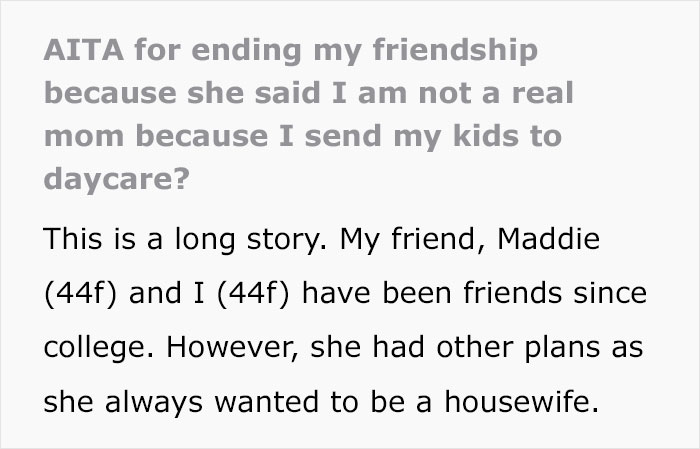
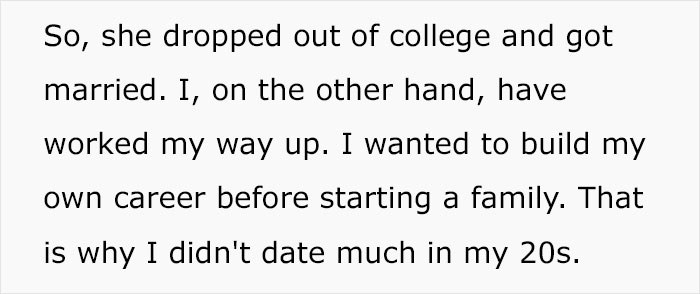
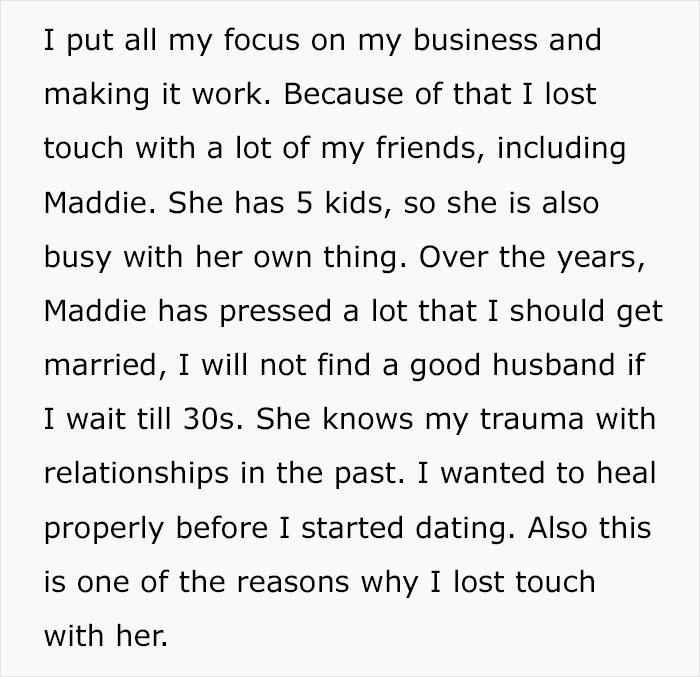
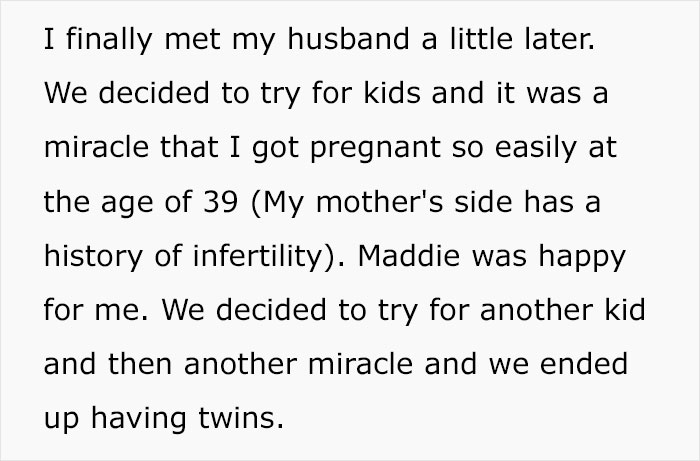
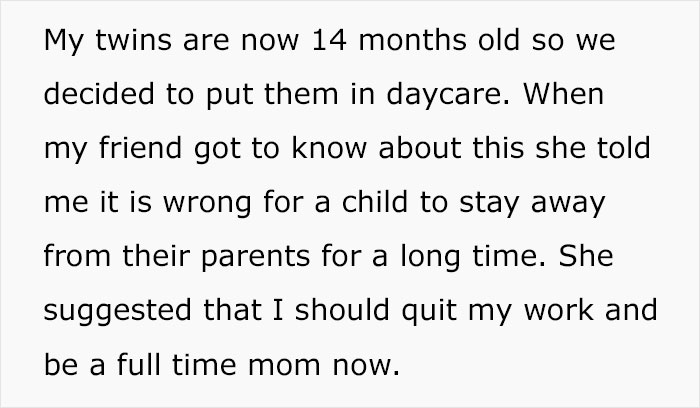
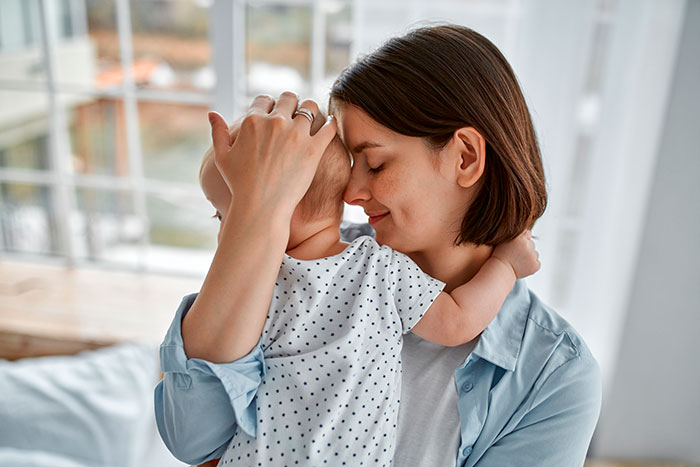
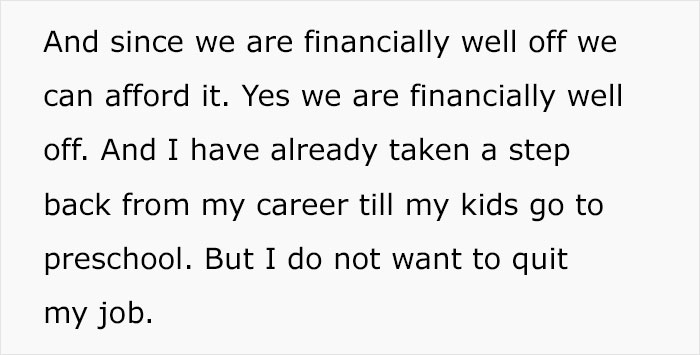
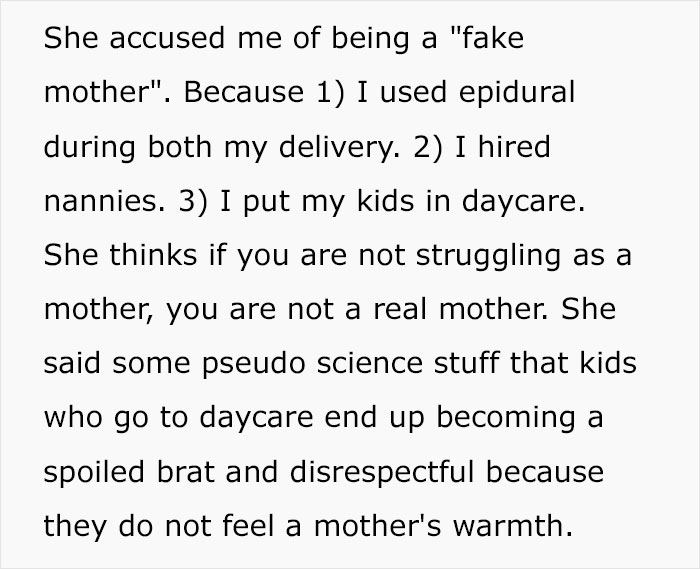
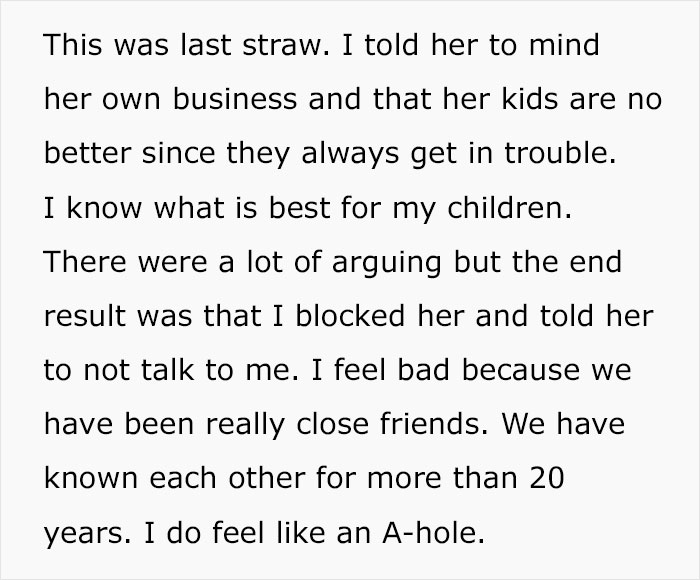
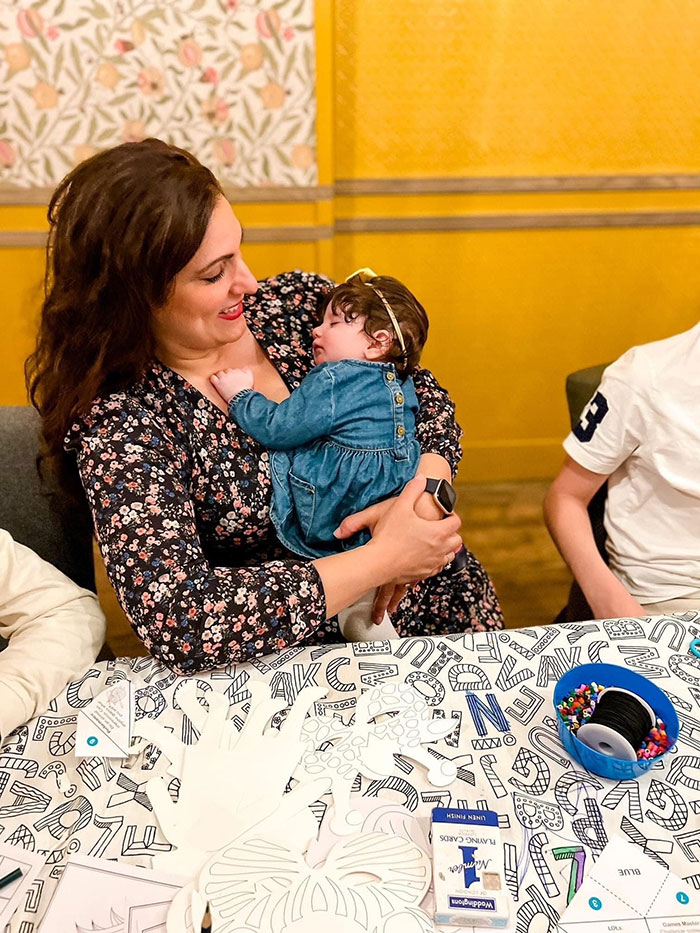


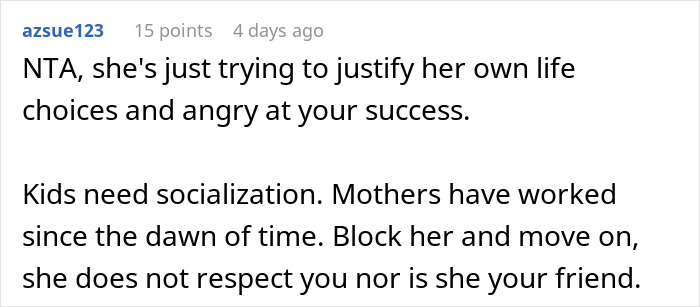
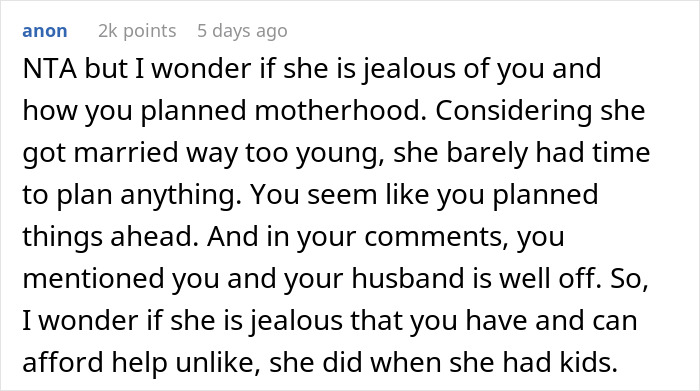

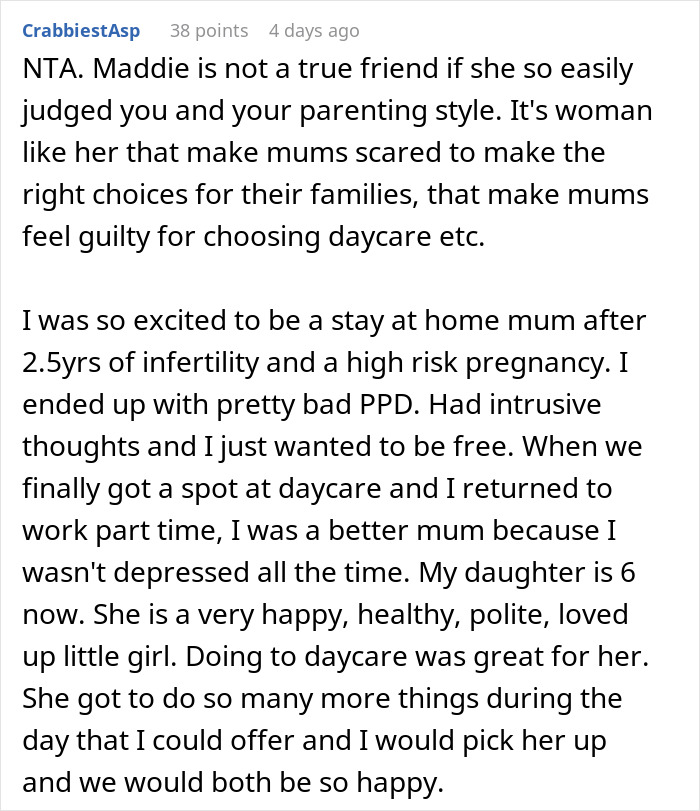
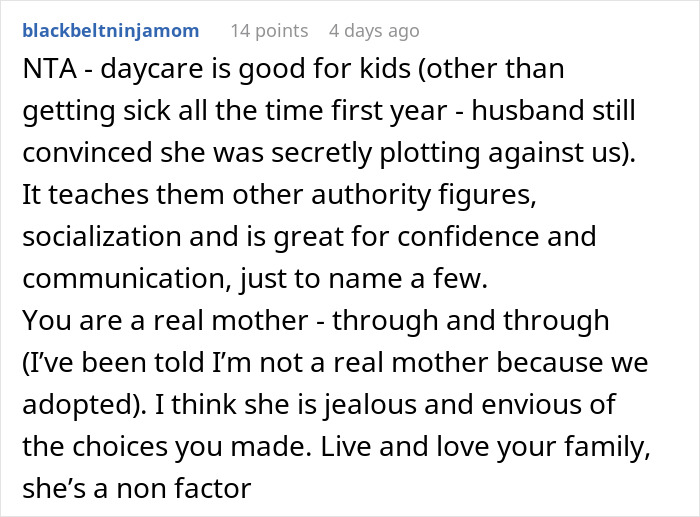


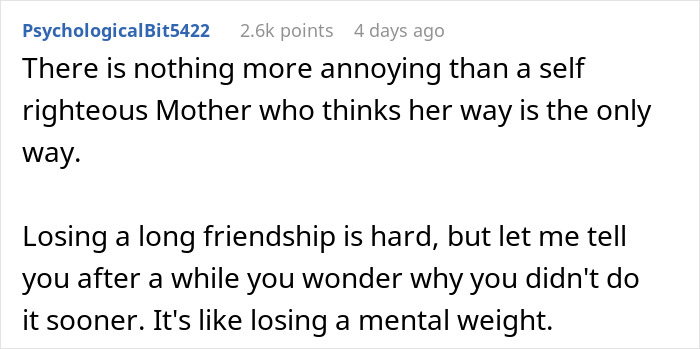
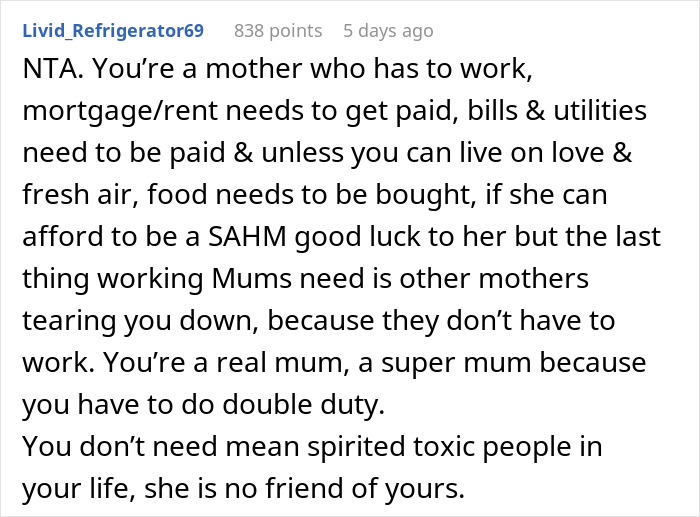

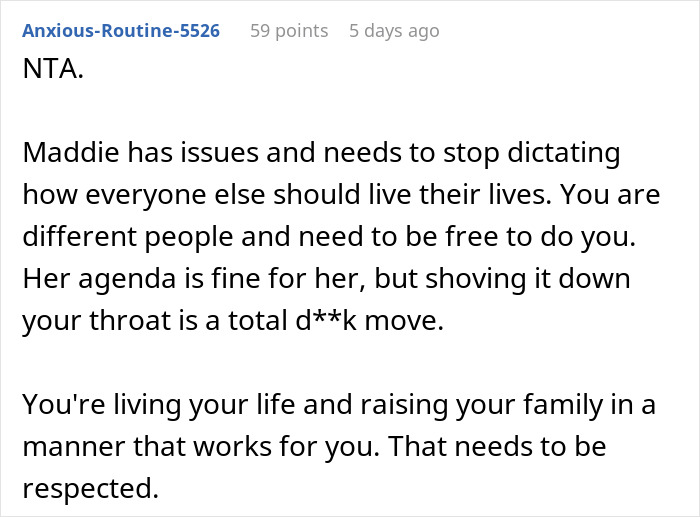
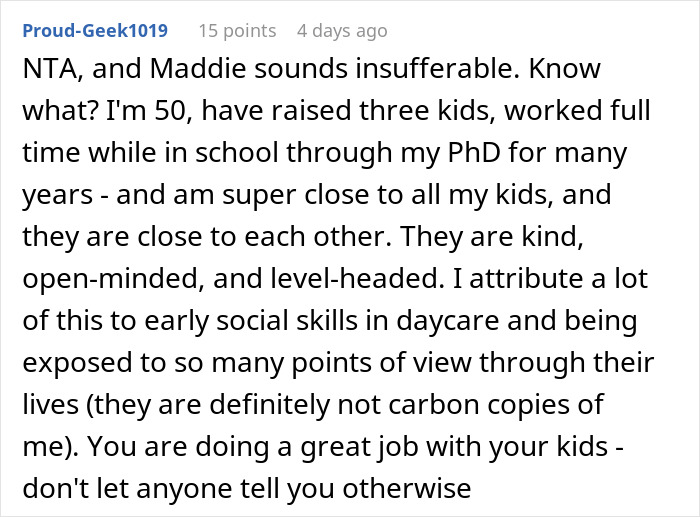
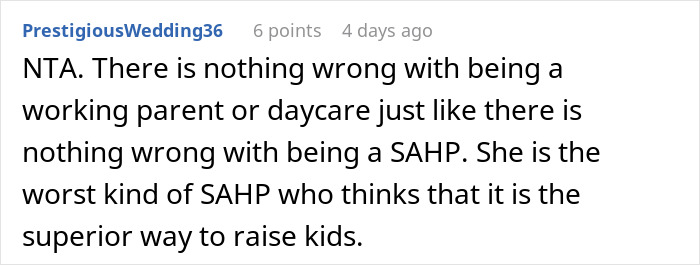
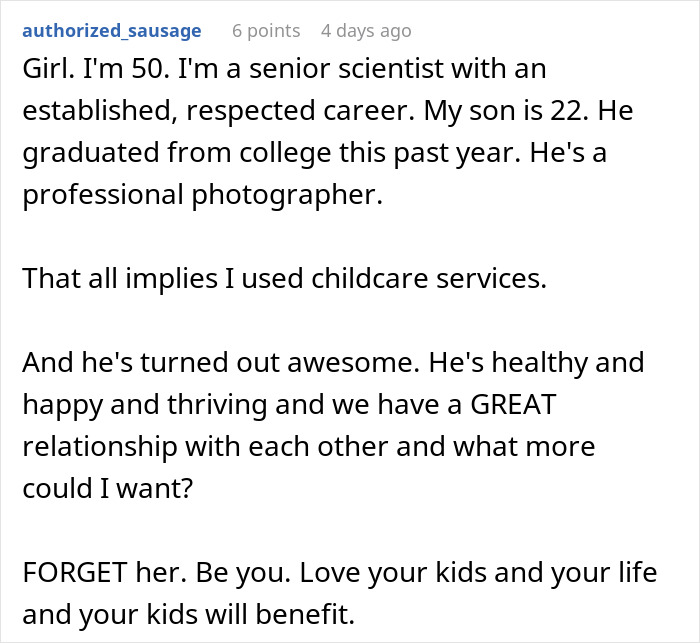

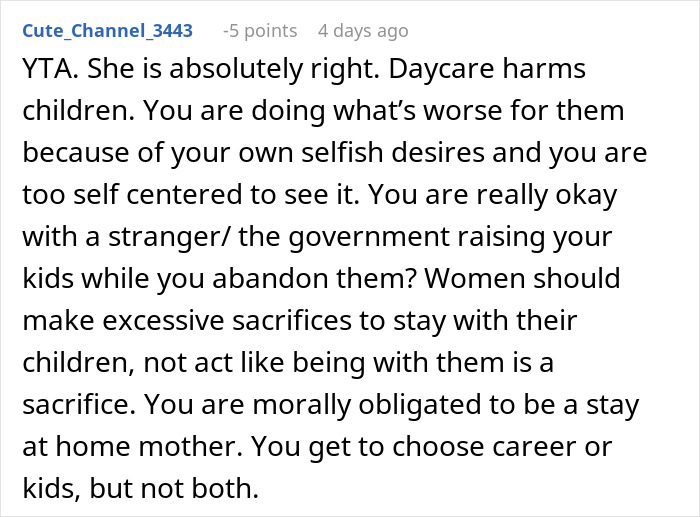

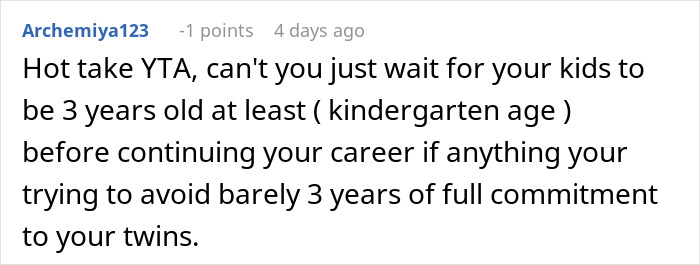












































31
95